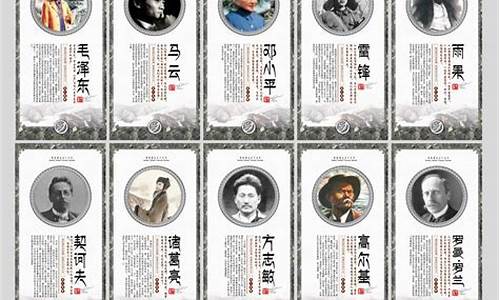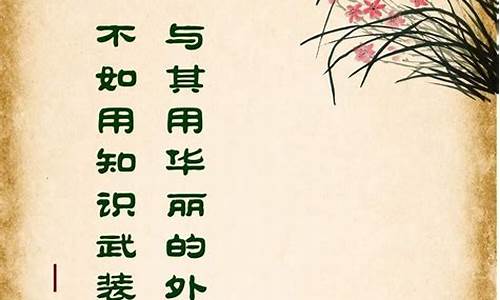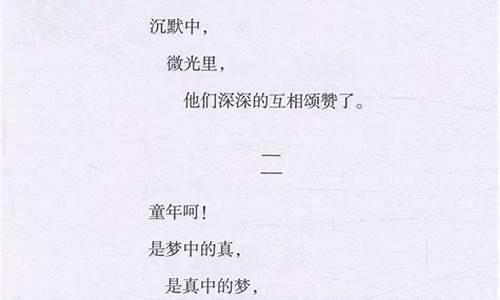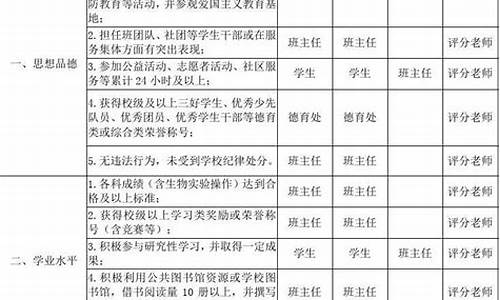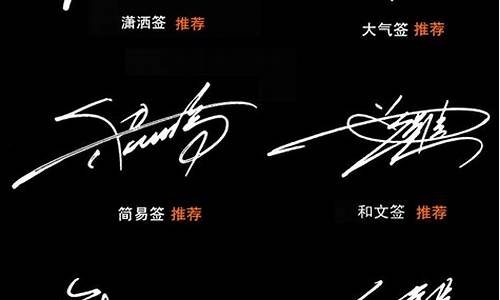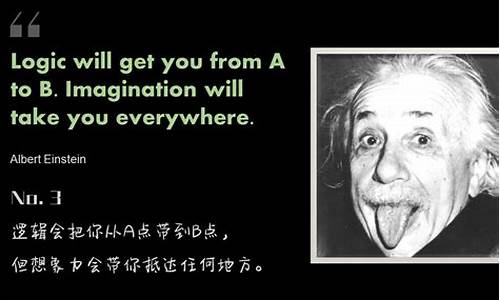六年级英语上册句子表_六年级英语上册句子表三单元
1.六年级上册英语第四单元知识点
2.求25个苏教版六年级上句子英语
3.英语六年级句子
4.小学六年级英语上册知识点归纳Unit3
5.求开心学英语六年级上册的所有单词,句子

六年级英语第42页笔记
2020年12月3日六年级英语第42页笔记 发布于 2020-12-03 21:05 H庆奥 一起来分享给朋友们看看吧: ...
小红书
小学英语六年级上册第四单元 - 第42页 - 跟读与翻译
374次播放
02:11
豁牙叔叔笑说英语
20小时前
六年级上册英语42页,上方怎么写 - 中小学资深教师解答 - 问一问
在线
2487位教育培训答主在线答
已服务超1.5亿人5分钟内回复
Hi,为您实时解答教育类升学、学科答疑等问题,与高校名师、专家1对1在线沟通
六年级上册英语42页,上方怎么写
马上提问
2022最新版六年级上册电子书
147人正在咨询
六年级上册英语书28页中文
116人正在咨询
六年级上册英语42页答案
149人正在咨询
2022最新版六年级上册电子书
147人正在咨询
问一问
小学六年级英语上册第42页的翻译 - 懂得
1. 我们在周末,拜访刘涛的爷爷奶奶。
2. 刘涛的爷爷奶奶住在一个小城镇。
3. 刘涛的爷爷展示给他们看他的邮票。4周一,刘涛的爷爷奶奶和我们打扫这间房子。5苏海,苏扬和本浇花浇树。6刘涛,高山和我摘苹果
懂得网
大家还在搜
2022最新版六年级上册电子书
六年级英语上册全书翻译
六年级上册英语第42页笔记
六年级英语42页仿写
六年级上册英语44页笔记
六年级上册英语书42页仿写
六年级下册英语42页笔记
英语书六年级上册42页的翻译
人教版 六年级上英语 第四单元 第42页
05:25
时间:2019-11-06
简介:人教版 六年级上英语 第四单元 第42页 是在优酷播出的教育,于2019-11-06 09:55:59上线。内容简介:就想帮孩子们学好英语!
优酷官方
人教PEP版 六年级上英语 第四单元 第42页
05:25
七彩风弄影
2020年12月26日
六年级上册英语42页,上方怎么写 - 百度文库
六年级上册英语重点句子共42页
六年级上册英语重点句子 Unit one Where is the museum shop? 博物馆的商店在哪? It is near the door. 在大门附近。 How can ...
阅读0次共42页
全新外研版小学六年级英语上册导学案(全册 共42页)
阅读14次共42页
六年级上册英语重点句子
阅读0次共42页
外研社英语三起六年级上册共42页PPT
阅读6次共42页
百度文库
小学六年级英语上册第42页的翻译 - 百度知道
6个回答回答时间:2010年11月15日
最佳回答:2 准备不充分。说,不打无准备之仗。言外之意,无准备之仗很难打赢,我却没有按照这句至理名言行事,导致这次考试吃了...
百度知道
六年级英语上册42页阅读课,课本全套合集找
02:46
小羊嘻嘻老师
2021年11月19日
大家还在搜
六年级英语翻译器
六年级英语上册录音
英语书六年级上册笔记
六年级上册英语第23课笔记
六年级英语43页答案
六上英语第42页笔记
43页笔记六年级上册
2022六年级上册英语课堂笔记
正在加载...
六年级上册英语第四单元知识点
I 询问姓名、年龄。
1. ----What’s your name? ----你叫什么名字?
----My name is ________. ----我叫……。
2. ----How old are you? ----你几岁了?
----I’m 12. ----我十二岁。
II 询问颜色。
1. ----What colour is it? ----它是什么颜色的?
----It’s yellow and white. ----黄白相间。
2. ----What colour are they? ----它们是什么颜色的?
----They’re green. ----绿色的。
III 询问数量或价钱。
1. ----How many kites can you see? ----你可以看见几只风筝?
-------I can see 12. ----我可以看见十二只风筝。
2. ----How many crayons do you he? ----你有多少支彩笔?
-------I he 16. ----我有十六支。
3.-----How many people are there in your family? ----你家有几口人?
-------Three. ----三口人。
4.-----How much is this dress? ----这条连衣裙多少钱?
-------It’s ninety-nine yuan. ----九十九元。
5.-----How much are these les? ----这些苹果多少钱?
-------They’re thirty-five yuan. ----三十五元。
IV 询问时间或日期。
1. --What time is it now? ----现在几点钟?
-----It’s nine o’clock.It’s time for English class.九点。该上英语课了。
-----It’s eight o’clock. It’s time to go to bed. 八点。该上床睡觉了。
2.--What day is it today? ----今天星期几?
----It’s Monday. ----星期一。
----What do we he on Mondays? ----我们星期一上哪些课?
----We he Chinese, English, math …----语文、英语、数学……
3.----When is your birthday? ----你的生日是什么时候?
------It’s October 1st, our National Day.---十月一日,国庆节。
4.----When do you do morning exercises? ---你们什么时候做早锻炼?
------I usually do morning exercises at 8:30.--我们通常8:30做早锻炼。
V 询问方位或地方。
1. ----Where is my toy car? ----我的玩具汽车在哪儿?
-------It’s here, under the chair. ----在这儿,在椅子下面。
2.----Where is the can? ----餐厅在哪儿?
------It’s on the first floor ----在一楼。
3. ---Where are the keys? ----钥匙在哪儿?
------They’re in the door. ----在门上。
4.--Excuse me. Where is the library, please? 对不起,请问图书馆在哪儿?
----It’s near the post office. ----在邮局附近。
5. ---Where are you from? ----你从哪儿来?
------I’m from China. ----我从中国来。
6. ---Where does the rain come from? ----雨是从哪儿来的?
------It comes from the clouds. ----它是从云层里来的。
VI 询问想吃的东西。
1.----What would you like for breakfast / lunch / dinner ?
你早餐/中餐/晚餐想吃点什么?
------I’d like some bread and milk / rice and soup.
我想吃面包和牛奶/米饭和汤。
2.----What’s for breakfast / lunch / dinner?---早餐/中餐/晚餐吃什么?
------Hamburgers and orange juice. ----汉堡包和橙汁。
VII 询问天气状况。
1.----What’s the weather like in Beijing? ----北京的天气如何?
------It’s rainy today. How about New York? 今天是雨天。纽约呢?
------It’s sunny and hot. ----今天是晴天,天气很热。
VIII 询问身体状况或情绪。
1. ----How do you feel? ----你感觉如何?
----I feel sick. ----我觉得不舒服。
2. ----What’s the matter? ----怎么了?
----My throat is sore. / I he a sore throat.---我的喉咙疼。
3. ----How are you, Sarah? You look so hy. ---你好吗,莎拉?你看起来这么伤心。
----I failed the math test. ----我的数学考试没有通过。
IX 询问职业、身份或人物。
1.----What’s your father / mother? ---你的父亲 / 母亲是做什么的?
----He’s a doctor. / She’s a teacher.---他是一名医生。/ 她是一名教师。
2.----What does your mother / father do? ---你的母亲 / 父亲是做什么的?
----She’s a TV reporter. / He’s a teacher. He teaches English.
她是一名电视台记者。/他是一名教师。他教英语。
3.----Who’s that man / woman? ----那位男士 / 女士是谁?
----He’s my father. / She’s my mother. 他是我父亲。 / 她是我母亲。
4.----Who’s this boy / girl? ----那个男孩儿 / 女孩儿是谁?
----He’s my brother. / She’s my sister.--他是我兄弟。 / 她是我姐妹。
5.----Who’s your art teacher? ----你们的美术老师是谁?
----Miss Wang. ----王老师。
----What’s she like? ----她长什么样儿?
----She’s young and thin. ----她很年轻、苗条。
学英语主要句型汇总
I 询问姓名、年龄:name,How old
1. ----What’s your name? ----你叫什么名字?
----My name is ________. ----我叫……。
2. ----What’s his name? ----他的名字是什么?
----His name is Mike. ----他的名字是麦克。
3. ----What’s her name? ----她的名字是什么?
----Her name is Chen Jie.----她的名字是陈婕。
4. ----How old are you? ----你几岁了?
----I’m 12. ----我十二岁。
5. ----How old is he/she? ----他/她几岁了?
----He/She is 23. ----他/她23岁。
II 询问颜色:colour
1. ----What colour is it? ----它是什么颜色的?
----It’s yellow and white. ----黄白相间。
2. ----What colour are they? ----它们是什么颜色的?
----They’re green. ----绿色的。
III 询问时间或日期:When
1. ----What time is it now? ----现在几点钟?
----It’s nine o’clock.. It’s time for English class. ----九点。该上英语课了。
(----It’s eight o’clock. It’s time to go to bed.) (----八点。该上床睡觉了。)
2. ----What day is it today? ----今天星期几?
----It’s Monday. ----星期一。
----What do we he on Mondays? ----我们星期一上哪些课?
----We he Chinese, English, math … ----语文、英语、数学……
3. ----When is your birthday? ----你的生日是什么时候?
----It’s October 1st, our National Day. ----十月一日.国庆节。
4. ----When do you do morning exercises? ----你们什么时候做早锻炼?
----I usually do morning exercises at 8:30. ----我们通常8:30做早锻炼。
IV 询问方位或地方:Where
1. ----Where is my toy car? ----我的玩具汽车在哪儿?
----It’s here, under the chair. ----在这儿.在椅子下面。
2. ----Where is the can? ----餐厅在哪儿?
----It’s on the first floor. ----在一楼。
3. ----Where are the keys? ----钥匙在哪儿?
----They’re in the door. ----在门上。
4. ----Excuse me. Where is the library, please? ----对不起.请问图书馆在哪儿?
----It’s near the post office. ----在邮局附近。
5. ----Where are you from? ----你从哪儿来?
----I’m from China. ----我从中国来。
6. ----Where does the rain come from? ----雨是从哪儿来的?
----It comes from the clouds. ----它是从云层里来的。
V 询问数量或价钱:How many , How much
1. ----How many kites can you see? ----你可以看见几只风筝?
----I can see 12. ----我可以看见十二只风筝。
2. ----How many crayons do you he? ----你有多少支彩笔?
----I he 16. ----我有十六支。
3. ----How many people are there in your family? ----你家有几口人?
----Three. ----三人。
4. ----How much is this dress? ----这条连衣裙多少钱?
----It’s ninety-nine yuan. ----九十九元。
5. ----How much are these les? ----这些苹果多少钱?
----They’re thirty-five yuan. ----三十五元。
XVI “How”问句:How tall, How hey, How long
1. ----How tall are you? ----你有多高?
----I’m 160 cm tall. I’m taller than you. ----我有160公分。我比你高。
2. ----How hey are you? ----你有多重?
----I’m 48 kg. You’re heier than me. ----我有48公斤。你比我重。
3. ----How do you go to school? ----你怎么上学?
----Usually I go to school on foot. Sometimes I go by bike. ---我通常步行上学。有时候骑自行车。
4. ----How can I get to Zhongshan Park? ----我怎么到中山公园去?
----You can go by the No. 15 bus. ----你可以乘坐15路公汽。
(----Go straight for five minutes. Then turn left. It’s on the left.) ----直走五分钟。然后左转。公园就在左边。
5. How long 有多长?
VIII询问身体状况或情绪:feel, matter
1. ----How do you feel? ----你感觉如何?
----I feel sick. ----我觉得不舒服。
----How does Chen Jie feel? ----陈洁感觉如何?
----She’s tired. ----她很疲倦。
2. ----What’s the matter? ----怎么了?
----My throat is sore. / I he a sore throat. ----我的喉咙疼。
3. ----How are you, Sarah? You look so hy. ----你好吗.莎拉?你看起来这么伤心。
----I failed the math test. ----我的数学考试没有通过。
VI 询问想吃的东西:would like
1. ----What would you like for breakfast / lunch / dinner ? ----你早餐/中餐/晚餐想吃点什么?
----I’d like some bread and milk / rice and soup. ----我想吃面包和牛奶/米饭和汤。
2. ----What’s for breakfast / lunch / dinner? ----早餐/中餐/晚餐吃什么?
----Hamburgers and orange juice. ----汉堡包和橙汁。
VII 询问天气状况:weather
1. ----What’s the weather like in Beijing? ----北京的天气如何?
----It’s rainy today. How about New York? ----今天是雨天。纽约呢?
----It’s sunny and hot. ----今天是晴天.天气很热。
IX 询问职业、身份或人物:Who , What
1. ----What’s your father / mother? ----你的父亲 / 母亲是做什么的?
----He’s a doctor. / She’s a teacher. ----他是一名医生。/ 她是一名教师。
2. ----What does you mother / father do? ----你的母亲 / 父亲是做什么的?
----She’s a TV reporter. / He’s a teacher. He teaches English.
----她是一名电视台记者。/他是一名教师。他教英语。
3. ----Who’s that man / woman? ----那位男士 / 女士是谁?
----He’s my father. / She’s my mother. ----他是我父亲。 / 她是我母亲。
4, ----Who’s this boy / girl? ----那个男孩儿 / 女孩儿是谁?
----He’s my brother. / She’s my sister. ----他是我兄弟。 / 她是我姐妹。
5. ----Who’s your art teacher? ----你们的美术老师是谁?
----Miss Wang. ----王老师。
----What’s she like? ----她长什么样儿?
----She’s young and thin. ----她很年轻、苗条。
X 询问兴趣、喜好:fourite
1. ----What’s your fourite food / drink? ----你最喜欢的食物 / 饮料是什么?
----Fish / orange juice. ----鱼。 / 橙汁。
2. ----What’s your fourite season? ----你最喜欢的季节是什么?
----Winter. ----冬天。
(----Which season do you like best? (----你最喜欢哪个季节?
----Winter.) ----冬天。)
----Why do you like winter? ----你为什么喜欢冬天?
----Because I can make a snowman. ----因为可以堆雪人。
3. ----What’s your hobby? ----你的爱好是什么?
----I like collecting stamps. ----我喜欢集邮。
----What’s his hobby? ----他的爱好是什么?
----He likes riding a bike. ----他喜欢骑自行车。
4. ----Do you like peaches? ----你喜欢吃桃子吗?
----Yes, I do. / No, I don’t. ----喜欢。/ 不喜欢。
XI 询问平时一般做的事情:What
1. ----What do you do on Saturdays / on the weekends? ----你星期六 / 周末一般做什么?
----I usually do my homework. Sometimes I play football. ----我通常做作业.有时候踢足球。
XII 询问正在做的事情:What + -ing
1. ----What are you doing? ----你在做什么?
----I’m doing the dishes. ----我在洗盘子。
2. ----What’s your father doing? ----你父亲正在做什么?
----He’s writing an e-mail. ----他正在写电子邮件。
3. ----What’s the tiger doing? ----那只老虎在干什么?
----It’s running. ----它在奔跑。
4. ----What are the elephants doing? ----那些大象在干什么?
----They’re drinking. ----它们正在喝水。
XIII 询问将要做的事情:What/Where/When + going
1. ----What are you going to do? ----你准备做什么?
----I’m going to the cinema. ----我准备去看**。
----When are you going to do? ----你准备什么时候去?
----This afternoon. ----今天下午。
2. ----where are you going this afternoon? ----今天下午你准备到哪儿去?
----I’m going to the bookstore. ----我准备到书店去。
----What are you going to buy? ----你打算买点儿什么?
----I’m going to buy a comic book. ----我准备买本书。
XIV 询问曾经做的事情:
1. ----Where did you go last weekend / yesterday / on your holiday?
----你上周末/昨天/期到哪儿去了?
----I went to Wuhan. ----我去了武汉。
2. ----How did you go there? ----你怎么去的?
----I went by train. ----我坐火车去的。
3. ----What did you do there? ----你在那儿做了些什么?
----I went shopping. ----我去购物了。
XV 一般疑问句:
1. ----Is this your bedroom? ----这是你的卧室吗?
----Yes, it is. ----是的。
----Is your sister in the living room? ----你姐姐在客厅吗?
----No, she isn’t. / Yes, she is. ----不在。/ 在。
2. ----Is this your skirt? ----这是你的短裙吗?
----Yes, it is. / No, it isn’t. ----是的。/ 不是。
3. ----Is your English teacher young? ----你的英语老师年轻吗?
----Yes, she is. / No, she isn’t. ----是的。/不.她不年轻。
4. ----Are these / those / they cucumbers? ----这些 / 那些是黄瓜吗?
----Yes, they are. / No, they aren’t. ----是的。/ 不是的。
5. ----Is there a river in the park? ----公园里有一条小河吗?
----Yes, there is. / No, there isn’t. ----有。/ 没有。
----Are there any bridges in your village? ----你们村子里有桥吗?
----Yes, there are. / No, there aren’t. ----有。/ 没有。
6. ----Can I wear my new shirt today? ----我今天可以穿新衬衫吗?
----Yes, you can. / No, you can’t. ----可以。/ 不可以。
7. ----Can you wash your clothes? ----你会洗衣服吗?
----Yes, I can. / No, I can’t. ----会。/ 不会。
8. ----Does your pen pal live in Shanghai? ----你的笔友住在上海吗?
----No, he doesn’t. He lives in Beijing. ----不.他住在北京。
9. ----Does she teach English? ----她教英语吗?
----No, she doesn’t. She teaches math. ----不.她教数学。
10. ----Did you read books yesterday? ----你昨天读书了吗?
----Yes, I did. / No, I didn’t. ----读了。/ 没读。
XVII 其他:
1. ----What’s in the classroom? ----教室里有什么?
----A board, six lights, three fans, many desks and chairs.
----一块黑板、六盏灯.三把电扇和许多桌椅。
2. What about you? / How about you? ----你呢?
3. I like the white sweater with the green skirt. ----我喜欢这件白毛衣配这条绿短裙。
4. ----Whose is it? ---它是谁的?
----It’s mine / yours / his / hers. ----是我的。/ 你的。/ 他的。/ 她的。
5. ----What can you do? ----你会做什么?
----I’m helpful. I can sweep the floor and do the dishes. ----我很能干。我会扫地、洗盘子。
6. ----What’s your bedroom like? ----你的卧室是什么样儿的?
----There is a big closet and a new mirror. There are blue curtains.
----卧室里有一个大衣橱和一面新镜子。还有蓝色的窗帘。
求25个苏教版六年级上句子英语
大家有没有开始学习了呢?如果还没有,不能再偷懒,现在就要抓紧时间开始了哦!下面为大家分享六年级上册英语第四单元知识点,希望对大家有所帮助。
一、主要单词和词组
hobby ridea bike dive play the violin make kites collect stamps live teaches watches goes does doesnt=doesnot
二、主要句子
1、What’syourhobby?你的爱好是什么?
Ilikecollectingstamps.我喜欢集邮。
2、Helikescollectingstamps,too.他也喜欢集邮
3、DoessheteachEnglish?No,shedoesn’t.她教英语吗?不。
4、Doessheteachyoumath?Yes,shedoes.她教你数学吗?是的。
三、知识点
1、动词变为现在分词的规则:
动词变为现在分词,即是动词加ing。一般要遵循以下三条规则:
(1)一般情况下,在动词的后面直接加ing。
如:play—playingread—readingdo—doinggo—going
(2)以不发音的字母e结尾的动词,要去掉不发音的字母e,再加ing。
如:write—writingride—ridingmake—makingdance—dancing
(3)以单元音加单辅音结尾的重读闭音节,要双写最后一个辅音字母,再加ing。
如:run—runningswim—swimmingput—puttingsit—sitting
(4)少数几个以ie结尾的动词要把ie变y加ing
如:die--dying
2、关于动词的第三人称单数:
(1)在一个句子中,如果主语人称既不是你(you),也不是我(I),而是另外的一个人(she/he/it),这时的人称叫做第三人称单数。
(2)在第三人称单词的`句子中,若句子用一般现在时态,动词要使用第三人称单词形式。
(3)动词变为第三人称单数形式,要遵循以下规则:
①一般情况下,在动词的后面直接加s。
如:read--readsmake—makeswrite—writes
②以字母s,x,o,sh,ch结尾的动词,在词尾加es。
如:do—doeswash—washesteach—teachesgo—goespass—passes
③以y结尾的动词分为两个情况:以元音字母加y结尾的动词,在词尾直接加s。如:play—playsbuy—buys
以辅音字母加y结尾的动词,要把y变为i,再加es。如:study--studies
④特殊变化:he--has
(4)在一个第三人称单数的句子中,只要句子中出现了does或者其否定形式doesn’t.该句子中的其他动词就要使用原形。
(5)第三人称单数的肯定句在变为否定句时,在动词的前面加doesn’t.动词恢复原形。
如:helivesinBeijing.---hedoesn’tliveinBeijing.
(6)第三人称单数的陈述句在变为一般疑问句时,用does开头,后面的动词也要变为原形。
如:helivesinBeijing.---DoesheliveinBeijing?
3、名词变复数的规则变化:
名词复数的规则变化
构成法例词
A.在一般情况下,词尾加-sbook—booksbed--beds
B.以s,x,ch,sh结尾的词,词尾加-esbus—busesbox—boxes
dish—disheswatch--watches
C.以f或fe结尾的词,先将f或fe改成v,再加-esknife—kniveswife--wives
D.以o结尾的单词,有生命的物质加-es,无生命的物质加-stomato—tomatoesphoto—photos
hero—heroesnegro—negroes
E.以辅音字母加y结尾,先y将改i,再加上-esfamily—familiescity--cities
英语六年级句子
Unit 1
1. are what do to going we?
____________________
2. we the go shall on river cruise pearl?
____________________
3. instead to zoo xiangjiang go let’s!
____________________
4. he the in zoos we t to imes Guangzhou been many.
________________________
5. are of us going fun to all he there.
____________________
6. more can birds at see the Baiyu we zoo than on Hill.
________________________
7. are a clothes lot of there beautiful there.
____________________
Unit 2
1. are going Thursday you what morning to do on?
________________________
Let me see, I am not going to do anything.
2. with like you to would go us?
________________________
I’d love to, thanks a lot.
3. going are to lee we our eight at half house past.
________________________
4. don’t you house twenty come why to past our at eight?
________________________
5. you going are to the football TV evening watch tomorrow game on?
________________________
Yes, we are. I’m going to watch it together with Mike and Yongxian.
6. family are my a stupid watching film the when football is on game.
________________________
7. don’t why you to my come house watch to it?
________________________
8. you do to play want table with tennis tonight me?
________________________
I’m sorry, I can’t. I’m going to do my homework.
9. go to can I the with cinema you?
________________________
Yes, of course.
10. is capital the what Australia of?
________________________
Sydney.
11. is Sydney largest the city Australia of.
________________________
12. capital the Australia of Canberra is.
________________________
Unit 5
1. think I is more Tokyo than interesting Paris.
________________________
What about Rome?
2. warmer is Rome Paris than.
________________________
3. is Wellington than quieter other the cities.
________________________
4. is Wellington than cleaner Tokyo.
________________________
5. are so there beautiful many in places world the!
________________________
Unit 7
1. you do to want go with shopping me?
________________________
2. No,
don’t I shopping like! so It’s boring!
________________________
3. you would to like to come house my?
________________________
4. could computer we play games.
________________________
Unit 8
It’s my birthday soon.
Yes, it is.
1. would what like you do to?
________________________
2. would you to like he party a?
________________________
3. we maybe he could a outside picnic.
________________________
4. he you to your help mother.
________________________
5. you would like come to and to new listen CD my?
________________________
No, thanks.
6. do want you to to come party my?
________________________
Great! Can I bring a friend?
Unit 10
A: is Mrs this speaking White.
________________________
B: I may to speak White Miss?
________________________
A: is she here not, afraid I’m.
________________________
B: will when come she back?
________________________
A: At lunch time, I think.
I a take can for message her?
________________________
B: No, thanks.
A: I to can speak White Miss?
________________________
B: Speaking.
that who’s, please?
________________________
A: It’s Xiaoling here.
B: Hello, Xiaoling. How are you?
A: Very well, thanks. And you?
B: I’m fine too. Thanks.
called you I morning this.
________________________
you at but weren’t home.
________________________
A: Sorry, I was at school this morning.
Unit 11
A: Hello.
Guangzhou that international is School?
________________________
B: No
A: Is that 54329860?
B: Wrong number.
A: Sorry, goodbye.
A: 54329860. Guangzhou international school. Can I help you?
B: Good morning.
here is Mrs this Green.
________________________
I Miss to may White speak,please?
________________________
A: Sorry, Miss White is busy now. she is teaching in the classroom.
you call can later back?
________________________
She will be free at 9:00 am.
B: Thank you. Goodbye.
A: Good morning.
is Mary this speaking White.
________________________
calling who’s?
________________________
B: Hello, Miss White.
is Sally’s this here mother.
________________________
A: you call did at me 8:00 about?
________________________
B: Yes, I did. I’m sorry,
can’t school Sally today go to because very doesn’t she feel well.
________________________
A: hear sorry to I’m that.
________________________
the matter what’s her with?
________________________
B: She said she had a headache last night.
Sometimes she felt hot and sometimes cold. And she had a fever this morning.
A: I think she has a cold. Did she see the doctor?
B: No, she didn’t. but I’ll take her to hospital.
A: needs to she plenty get rest of.
________________________
Don’t worry! She’ll be all right soon. Thank you for your call, goodbye.
B: Bye.
Unit 13
1. date the what’s today?
________________________
It’s Thursday, November 3rd
2. did you what yesterday do school after?
________________________
I saw a film on TV.
3. What about you?
I football played in park the my with dad.
________________________
4. helped I my clean mum rooms the.
________________________
5. painted a I of picture horses some.
________________________
6. cleaned I my and house did housework other.
________________________
7. marked I homework your and today’s prepared lessons.
________________________
8. went to I at a bed quarter one to morning this.
________________________
Unit 14
1. was your what school old like?
________________________
It was ok. It was smaller and older than this school.
2. was the different timetable ours from?
________________________
Yes. We started school later and finished earlier.
3. will you how home get?
________________________
On foot. My house is really near the school.
4. did you how home get school from before?
________________________
I went home by bus.
Unit 16
1. is your it time first London in?
________________________
Yes, it is.
2. Christmas the most is festival important Britain in?
________________________
3. most the it’s important western in festival countries.
________________________
4. puts Father Christmas in stockings presents the at night.
________________________
Unit 17
1. is the this time to best in be China.
________________________
2. after day the tomorrow Spring is Festival.
________________________
3. it the most is and popular important festival China in?
________________________
4. are famous there before in Flowers Fairs Spring Guangzhou Festival.
________________________
5. usually adults lucky give to children money Spring during Festival.
________________________
6. yourself help some to dumplings.
________________________
7. like would I to dumplings eat everyday!
________________________
小学六年级英语上册知识点归纳Unit3
1. According to a recent survey, four million people die each year from diseases linked to smoking.
依照最近的一项调查,每年有4,000,000人死于与吸烟有关的疾病。
2. The latest surveys show that quite a few children he unpleasant associations with homework.
最近的调查显示相当多的孩子对家庭作业没什么好感。
3. No invention has received more praise and abuse than Internet.
没有一项发明像互联网一样同时受到如此多的赞扬和批评。
4. People seem to fail to take into account the fact that education does not end with graduation.
人们似乎忽视了教育不应该随着毕业而结束这一事实。
5. An increasing number of people are beginning to realize that education is not complete with graduation.
越来越多的人开始意识到教育不能随着毕业而结束。
6. When it comes to education, the majority of people believe that education is a lifetime study.
说到教育,大部分人认为其是一个终生的学习。
7. Many experts point out that physical exercise contributes directly to a person's physical fitness.
许多专家指出体育锻炼直接有助于身体健康。
8. Proper measures must be taken to limit the number of foreign tourists and the great efforts should be made to protect local environment and history from the harmful effects of international tourism.
应该取适当的措施限制外国旅游者的数量,努力保护当地环境和历史不受国际旅游业的不利影响。
9. An increasing number of experts believe that migrants will exert positive effects on construction of city. However, this opinion is now being questioned by more and more city residents, who complain that the migrants he brought many serious problems like crime and prostitution.
越来越多的专家相信移民对城市的建设起到积极作用。然而,越来越多的城市居民却怀疑这种说法,他们抱怨民工给城市带来了许多严重的问题,像犯罪和卖*。
10. Many city residents complain that it is so few buses in their city that they he to spend much more time waiting for a bus, which is usually crowded with a large number of passengers.
许多市民抱怨城市的公交车太少,以至于他们要花很长时间等一辆公交车,而车上可能已满载乘客。
11. There is no denying the fact that air pollution is an extremely serious problem: the city authorities should take strong measures to deal with it.
无可否认,空气污染是一个极其严重的问题:城市当局应该取有力措施来解决它。
12. An investigation shows that female workers tend to he a forable attitude toward retirement.
一项调查显示妇女欢迎退休。
12a. A proper part-time job does not occupy students' too much time. In fact, it is unhealthy for them to spend all of time on their study. As an old saying goes: All work and no play makes Jack a dull boy.
一份适当的业余工作并不会占用学生太多的时间,事实上,把全部的时间都用到学习上并不健康,正如那句老话:只工作,不玩耍,聪明的孩子会变傻。
14. Any , which is blind to this point, may pay a hey price.
任何忽视这一点都将付出巨大的代价。
15.Nowadays, many students always go into raptures at the mere mention of the coming life of high school or college they will begin. Unfortunately, for most young people, it is not pleasant experience on their first day on campus.
当前,一提到即将开始的学校生活,许多学生都会兴高烈。然而,对多数年轻人来说,校园刚开始的日子并不是什么愉快的经历。
16. In view of the seriousness of this problem, effective measures should be taken before things get worse.
考虑到问题的严重性,在事态进一步恶化之前,必须取有效的措施。
17. The majority of students believe that part-time job will provide them with more opportunities to develop their interpersonal skills, which may put them in a forable position in the future job markets.
大部分学生相信业余工作会使他们有更多机会发展人际交往能力,而这对他们未来找工作是非常有好处的。
18. It is indisputable that there are millions of people who still he a miserable life and he to face the dangers of starvation and exposure.
无可争辩,现在有成千上万的人仍过着挨饿受冻的痛苦生活。
19. Although this view is wildly held, this is little evidence that education can be oained at any age and at any place.
尽管这一观点被广泛接受,很少有证据表明教育能够在任何地点、任何年龄进行。
20. No one can deny the fact that a person's education is the most important aspect of his life.
没有人能否认:教育是人生最重要的一方面。
求开心学英语六年级上册的所有单词,句子
Unit 3 What are you going to do ?
一、重点短语:
this morning 今天上午 this afternoon 今天下午 this evening 今天晚上
next week 下周 tomorrow 明天 tonight 今晚
post card 明信片 comic book书 newspaper报纸
二、重点句型:
1.What are you going to do on the weekend?你周末打算做什么?
2.I’m going to visit my grandparents this weekend?这个周末我打算去看望我的外祖父母。
3.Where are you going this afternoon? 你今天下午打算去哪里?
4.I’m going to the bookstore.我打算去书店。
5.What are you going to buy?你打算去买什么?
6.I’m going to buy a comic book.我打算去买一本书。
三、重点语法:
1、What are you going to do?你想做什么?询问他人在未来的打算。be going to 后面要跟动词的原形。注意be going to be 意思是 "打算成为什么,干什么职业。"注意一下句子的区别,找出正确回答。What are you going to do this afternoon?What are you going to buy?What are you going to be?When? are you going?Where are you going?How are you going?Who are you going with?
2、this evening 和 tonight的 区别:this evening指的是今天晚上睡觉以前的时间,一般指晚上十二点以前。而tonight指的是今晚,一般是指一整晚的时间,通宵。
3、P30写周末的作文的模板
4、部分疑问代词的意义与用法:
(1)What 什么。用来问是什么,做什么,叫什么,什么样等等。如:What is your name? 你的名字叫什么?
What is your father? 你爸爸是干什么的?
What is your hobby?你的爱好是什么?
What is your fourite food?你最喜爱的食物是什么?
What's your math teacher like? 你的数学老师长得什么样子?
(2)Where , 在哪里,到哪里。用来问地点。
如:Where are you from?你从哪里来?
Where are you going to ?你打算去哪里?
Where is my ruler?我的`尺子在哪里?
(3)When,什么时候。用来问时间。如:
When is your birthday? 你的生日是什么时候?
When are you going to ?你打算什么时候去?
When do you go to school?你什么时候去上学?
(4)what time 几点了。用来问具体的时间,
如:What time is it? 现在几点了?
(5)What colour什么颜色。用来问物体的颜色。如:
What colour is your schoolbag?你的书包是什么颜色的?
(6)What kind of 什么种类。用来问类别。如
What kind of fruit do you like?你最喜欢哪一种水果?
(7)who谁。用来问人物是谁。如:
Who is your English teacher ?你的英语老师是谁?
Who's that man? 那个男人是谁?
(8) whose谁的。用来问物体的主人是谁?如:
Whose pencil is this? 这是谁的铅笔?
Whose bike is blue? 谁的自行车是蓝色的?
(9) which哪一个。用来问具体的哪一个。如:
Which season do you like best?你最喜欢哪个季节?
Which pencil is ken's? the long one or the short one?
哪只铅笔是Ken的?长的那支还是短的那支?
(10)how怎样?用来问身体状况,或者事情的状况,对的看法等。如:
How are you?你好吗?
How is your mother? 你妈妈好吗?
How about you? 你呢?
(11)how many多少个。用来问有多少个,后面要跟名词的复数形式。如:
How many books do you he?你有多少本书?
How many kites can you see? 你能看见多少只风筝?
(12) how much 多少钱。用来问物体的价钱。如:
How much are they? 他们多少钱?
How much is your schoolbag? 你的书包多少钱?
(13)how old 几岁了。用来问年龄。如
How old are you ? 你几岁了?
How old is your father? 你爸爸多大了?
(14)why为什么。用来问原因,一般要用because来回答。如:why do you like spring?你为什么喜欢春天?
Because I can fly kites.国为我可以放风筝。
(15) how long 多长
(16)how tall 多高
5、I want to be…我想成为… 表示理想。相当于I'm going to be ….
6、地点名称:fruit stand 水果店 clothes shop服装店shoe store鞋店pet shop宠物店 theme park主题公园the Great Wall长城 plant shop 植物店restaurant 饭店 bus stop 公交车站
7、在哪个门用介词at, at the north/east/south/west gate.
Unit1
词语:by 经,乘 foot 脚 bike 自行车 bus 公共汽车 train 火车 plane飞机 ship船;舰 subway地铁 how 怎样 go to school 上学 then然后 fifth第五 traffic 交通 traffic light 交通灯 traffic rule 交通规则 stop 停,停车站 wait 等待 remember记住 get to 到达 find寻找;找到 difference不同;区别 same相同的 every每个;所有的 country国家 always总是;一直 mean意思是 drive驾驶 right右边的 side边England英国 Australia澳大利亚 however但是 left 左边的 if 如果 must必须 know知道
句子:1.--How do you go to school? 你怎样去学校的? --My home is near. Usually I go to school on foot. Sometimes I go by bike. 我的家很近。我经常走路去学校。有的时候骑自行车去学校。2.—How can I get to Zhongshan Park? 我怎样可以到达中山公园? --You can go by the No.15 bus. 你可以乘15路公交车去。3. China中国/US美国 right 在右边 England英国/Australia澳大利亚 left 在左边 Look at the traffic lights. 看看交通灯。 Remember the traffic rules.记住交通规则。 Stop at a red light. 红灯停。 Wait at a yellow light. 黄灯等。Go at a green light. 绿灯行。
Unit 2
词语:library 图书馆 post office 邮局 hospital 医院 cinema **院 bookstore 书店science museum科学博物馆 excuse me 对不起 where 在哪里,到哪里 please 请 next to 与…相邻 far远 supermarket超市 bank银行 after school 放学以后 want想要 buy购买 a pair of 一双 shoe store鞋店 get off 下车 minute分钟 north北 south南 east东 west西 turn 转弯 right 右边 left 左边 straight 成直线地 then然后 twelfth第十二 party聚会 tell告诉 start开始 take乘坐 look for寻找
句子:1.—Where is the cinema, please? 请问**院在哪里? --It’s next to the hospital. 它与医院相邻。2. You can go by the No.301 bus. Get off at the cinema. Then walk straight for three minutes. The hospital is on the left. 你可以乘301路公交车。在**院下车。然后笔直往前走三分钟。医院就在左边。3. Turn left at the cinema, then go straight. It’s on the left. 在**院那里向左转,然后笔直走,它就在左边。
Unit 3
词语:next week 下周 this morning 今天上午 this afternoon 今天下午 this evening 今天晚上 tonight今晚 tomorrow明天 take a trip去旅行 read a magazine阅读杂志 go to the cinema 去看** theme park 主题公园 the Great Wall长城 busy忙碌的 together一起地 comic book 书 post card 明信片 newspaper 报纸 magazine杂志 dictionary词典;字典 shoe store鞋店 buy 购买 fruit stand水果摊 pet shop宠物商店 need需要 plant植物 else其他;另外 shop商店
句子:1.—What are you going to do on the weekend? 你周末打算做什么? --I’m going to visit my grandparents this weekend. 我打算去看望我的祖父母。2.—Where are you going this afternoon? 你下午打算去哪里? --I’m going to the bookstore. 我打算去书店。 --What are you going to buy? 你要去买什么? --I’m going to buy a comic book. 我想去买一本书。3.—What are you going to do in 20 years’ time? 20年后你打算做什么 --I’m going to walk on the moon. 我想在月球上走路。
Unit 4
词语:hobby 爱好 ride a bike--riding a bike 骑自行车 dive--diving 跳水 play the violin—playing the violin 拉小提琴 make kites—making kites 制作风筝collect stamps—collecting stamps 集邮 show展览 pen pal笔友 dear亲爱的twin双胞胎之一 look看上去 something某事物 must一定;肯定 fun快乐;乐趣with同…;和… TV reporter电视台记者 live –lives 居住 teach--teaches 教 go--goes 去 watch--watches 看 read--reads 读,看 does doesn’t=does not different不同的 week星期;周 say说;讲 soon不久 excited兴奋的;激动的
句子:1.—What’s your hobby? 你的爱好是什么? --I like collecting stamps. He likes collecting stamps, too. 我喜欢集邮。 他也喜欢集邮。2.—Does she teach English? 她是教英语的吗? --No, she doesn’t. /Yes, she does. 不,她不是。/是,她是的。
Unit 5
词语:singer 歌唱家,歌手 writer 作家 actor 男演员 actress 女演员 artist 画家 TV reporter 电视台记者 show演出;表演;节目 Hong Kong香港 engineer 工程师 accountant 会计 policeman 男警察 salesperson 销售员 cleaner 清洁工 company公司 where在哪里,到哪里 work 工作 factory工厂 design设计 tip有用的小建议;实用的小提示 help帮助 money钱;金钱 well好;对;满意地 enjoy获得乐趣tourist旅行者;旅游者;观光客 way路;道 motor cycle摩托车 police警方;警察部门
句子:1.—What does your mother do? 你的妈妈是做什么的? --She is a TV reporter. 她是一个电视台记者。2. --Where does she work? 她在哪里上班? --She works in a car company. 她在汽车公司上班。 --How does she go to work? 她怎样去上班的? --She goes to work by bus. 她乘公交车去上班。
Unit 6
词语:rain 雨 cloud 云 vapour蒸汽;水汽 sun 太阳 stream 河,溪 come from 来自,从…来 shine照耀 become变成 little小的 drop珠;滴wake up醒;醒来 feel感觉到;感受到 think想;思考 meet遇见;碰见high高的 other其他的;另外的;别的 fall落下;跌落;降落;掉下 down从高到低;向下 into进入;到…里面 come out露出;出现again再一次;又;再 seed soil 土壤 sprout 苗,芽plant 植物,种植 should 应该 then 然后 garden花园 easy简单的put放;放置 several一些(但不多);几个 day天 see看见 pot锅;碗;瓢;盆lovely可爱的;美丽的 make sure核实或查明某事物 get得到 month月份;月old年龄的 still仍然;依旧;还是 come on加油 hardly几乎没有;几乎不
句子1.—Where does the rain come from? 雨是从哪里来的? --It comes from the clouds. 它来自云。 2.—How do you do that? 你是怎样做的? --It’s easy. First, put the seed in the soil. 很简单。首先,把埋到泥土里。 --What should you do then? 然后你应该做些什么? --Water them. In several days, you can see a sprout. 给它们浇水。几天后,你就可以看见嫩芽了。
评论|0
2013-07-16 16:46零度W冰逝|二级
Unit 1by 经,乘 foot 脚 bike 自行车 bus 公共汽车 train 火车 plane飞机 ship船;舰 subway地铁 how 怎样 go to school 上学 then然后 fifth第五 traffic 交通 traffic light 交通灯 traffic rule 交通规则 stop 停,停车站 wait 等待 remember记住 get to 到达 find寻找;找到 difference不同;区别 same相同的 every每个;所有的 country国家 always总是;一直 mean意思是 drive驾驶 right右边的 side边England英国 Australia澳大利亚 however但是 left 左边的 if 如果 must必须 know知道1.--How do you go to school? 你怎样去学校的? --My home is near. Usually I go to school on foot. Sometimes I go by bike. 我的家很近。我经常走路去学校。有的时候骑自行车去学校。2.—How can I get to Zhongshan Park? 我怎样可以到达中山公园? --You can go by the No.15 bus. 你可以乘15路公交车去。3. China中国/US美国 right 在右边 England英国/Australia澳大利亚 left 在左边 Look at the traffic lights. 看看交通灯。 Remember the traffic rules.记住交通规则。 Stop at a red light. 红灯停。 Wait at a yellow light. 黄灯等。Go at a green light. 绿灯行。Unit 2library 图书馆 post office 邮局 hospital 医院 cinema **院 bookstore 书店science museum科学博物馆 excuse me 对不起 where 在哪里,到哪里 please 请 next to 与…相邻 far远 supermarket超市 bank银行 after school 放学以后 want想要 buy购买 a pair of 一双 shoe store鞋店 get off 下车 minute分钟 north北 south南 east东 west西 turn 转弯 right 右边 left 左边 straight 成直线地 then然后 twelfth第十二 party聚会 tell告诉 start开始 take乘坐 look for寻找 1.—Where is the cinema, please? 请问**院在哪里? --It’s next to the hospital. 它与医院相邻。2. You can go by the No.301 bus. Get off at the cinema. Then walk straight for three minutes. The hospital is on the left. 你可以乘301路公交车。在**院下车。然后笔直往前走三分钟。医院就在左边。3. Turn left at the cinema, then go straight. It’s on the left. 在**院那里向左转,然后笔直走,它就在左边。Unit 3next week 下周 this morning 今天上午 this afternoon 今天下午 this evening 今天晚上 tonight今晚 tomorrow明天 take a trip去旅行 read a magazine阅读杂志 go to the cinema 去看** theme park 主题公园 the Great Wall长城 busy忙碌的 together一起地 comic book 书 post card 明信片 newspaper 报纸 magazine杂志 dictionary词典;字典 shoe store鞋店 buy 购买 fruit stand水果摊 pet shop宠物商店 need需要 plant植物 else其他;另外 shop商店 1.—What are you going to do on the weekend? 你周末打算做什么? --I’m going to visit my grandparents this weekend. 我打算去看望我的祖父母。2.—Where are you going this afternoon? 你下午打算去哪里? --I’m going to the bookstore. 我打算去书店。 --What are you going to buy? 你要去买什么? --I’m going to buy a comic book. 我想去买一本书。3.—What are you going to do in 20 years’ time? 20年后你打算做什么 --I’m going to walk on the moon. 我想在月球上走路。Unit 4hobby 爱好 ride a bike--riding a bike 骑自行车 dive--diving 跳水 play the violin—playing the violin 拉小提琴 make kites—making kites 制作风筝collect stamps—collecting stamps 集邮 show展览 pen pal笔友 dear亲爱的twin双胞胎之一 look看上去 something某事物 must一定;肯定 fun快乐;乐趣with同…;和… TV reporter电视台记者 live –lives 居住 teach--teaches 教 go--goes 去 watch--watches 看 read--reads 读,看 does doesn’t=does not different不同的 week星期;周 say说;讲 soon不久 excited兴奋的;激动的1.—What’s your hobby? 你的爱好是什么? --I like collecting stamps. He likes collecting stamps, too. 我喜欢集邮。 他也喜欢集邮。2.—Does she teach English? 她是教英语的吗? --No, she doesn’t. /Yes, she does. 不,她不是。/是,她是的。 Unit 5singer 歌唱家,歌手 writer 作家 actor 男演员 actress 女演员 artist 画家 TV reporter 电视台记者 show演出;表演;节目 Hong Kong香港 engineer 工程师 accountant 会计 policeman 男警察 salesperson 销售员 cleaner 清洁工 company公司 where在哪里,到哪里 work 工作 factory工厂 design设计 tip有用的小建议;实用的小提示 help帮助 money钱;金钱 well好;对;满意地 enjoy获得乐趣tourist旅行者;旅游者;观光客 way路;道 motor cycle摩托车 police警方;警察部门1.—What does your mother do? 你的妈妈是做什么的? --She is a TV reporter. 她是一个电视台记者。2. --Where does she work? 她在哪里上班? --She works in a car company. 她在汽车公司上班。 --How does she go to work? 她怎样去上班的? --She goes to work by bus. 她乘公交车去上班。Unit 6rain 雨 cloud 云 vapour蒸汽;水汽 sun 太阳 stream 河,溪 come from 来自,从…来 shine照耀 become变成 little小的 drop珠;滴wake up醒;醒来 feel感觉到;感受到 think想;思考 meet遇见;碰见high高的 other其他的;另外的;别的 fall落下;跌落;降落;掉下 down从高到低;向下 into进入;到…里面 come out露出;出现again再一次;又;再 seed soil 土壤 sprout 苗,芽plant 植物,种植 should 应该 then 然后 garden花园 easy简单的put放;放置 several一些(但不多);几个 day天 see看见 pot锅;碗;瓢;盆lovely可爱的;美丽的 make sure核实或查明某事物 get得到 month月份;月old年龄的 still仍然;依旧;还是 come on加油 hardly几乎没有;几乎不1.—Where does the rain come from? 雨是从哪里来的? --It comes from the clouds. 它来自云。 cloud---rain----water---vapour 云 雨 水 水蒸气 (一个循环)2.—How do you do that? 你是怎样做的? --It’s easy. First, put the seed in the soil. 很简单。首先,把埋到泥土里。 --What should you do then? 然后你应该做些什么? --Water them. In several days, you can see a sprout. 给它们浇水。几天后,你就可以看见嫩芽了。
声明:本站所有文章资源内容,如无特殊说明或标注,均为采集网络资源。如若本站内容侵犯了原著者的合法权益,可联系本站删除。

